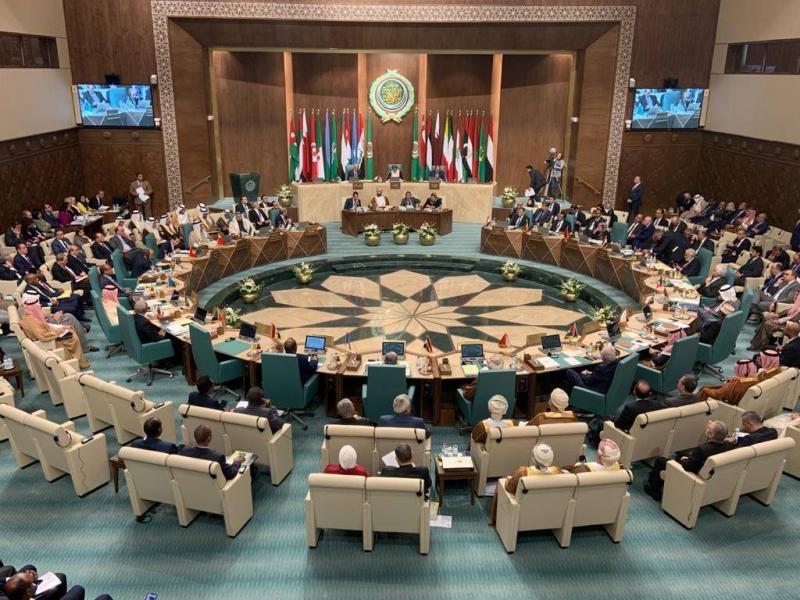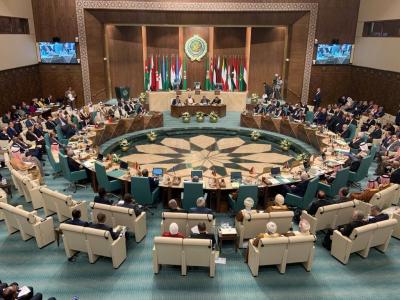The Arab official system was born with the establishment of the Arab League and the signing of its charter on March 22, 1945, coinciding with the conclusion of World War II. The idea of founding the League began about a year prior when Egyptian Prime Minister and leader of the Wafd Party, Mustafa El-Nahas, invited the Syrian Prime Minister, Jamil Mardam, and the leader of the Lebanese National Bloc, Beshara al-Khoury, to discuss the idea of establishing an Arab League that would include the independent states at that time. A series of consultations and discussions took place between the Egyptian Prime Minister and representatives from Saudi Arabia, Iraq, Syria, Lebanon, Jordan, Yemen, aiming to achieve Arab unity without compromising independence, ultimately favoring the idea of establishing the Arab League. The so-called Alexandria Protocol was reached, which was considered the first document issued by the countries participating in the founding conference on October 7, 1944. The League's charter was approved on March 19, 1945. Since that date, much water has flowed under the bridge, and the shelves of the Arab League building have been filled with dozens of agreements and charters, the foremost of which is the Treaty of Arab Collective Defense, addressing matters of culture, education, health, and the environment, among many others, and many summits have been held. However, a sentiment has prevailed among Arab elites throughout the League's journey that there is a vast gulf between those agreements and their implementations, leading to a widespread belief among the Arab public that what fills the archives of the Arab League is merely ink on paper.
In reality, this assessment is not entirely accurate; the Arab League played a supporting role during the era of national resurgence, aiding liberation movements in countries that fell prey to traditional colonialism. Its role was evident in supporting the Algerian revolution, opposing Jewish immigration to Palestine, and considering the Palestinian cause the central issue for Arabs. When the Camp David Accords were signed between Egypt and Israel, the League moved its headquarters from Cairo to Tunis, consistent with the official Arab position at that time.
In terms of the Arab League's role in supporting national causes, it should be noted that the League's position is not isolated from the positions of the Arab countries under its umbrella; rather, it expresses them. The number of member states was limited at its founding, consisting of only seven countries that had achieved political independence. As other Arab countries gained independence, such as Tunisia, Algeria, Morocco, Sudan, South Yemen, Somalia, and eventually the Gulf countries, the number of member states in the League doubled from that during the founding phase.
The Arab League has played a significant role in protecting Lebanon and Kuwait, affirming the Arab identity of the Gulf, and settling disputes between Arab governments. However, its success or failure remains contingent on the positions of Arab states, as the League, as an institution, possesses only the moral authority conferred upon it by the Arab system. Thus, the League's institutions strengthen with Arab consensus and the spirit of solidarity among Arab leaders, and fail when discord and conflict prevail among Arab regimes.
At this stage, the Arab nation faces major existential challenges that threaten its existence and future. Among the most notable are the genocide being perpetrated by Israel in Gaza, which has claimed the lives of over thirty-seven thousand martyrs, most of whom are civilians, with a significant portion being elderly, women, and children. Nearly ninety thousand have been injured, with no end in sight to this war. Similarly, there is a senseless war in Sudan between the Sudanese army and rapid intervention forces, which has lasted over a year since it ignited on April 15, 2023. Just as most victims of the war in Gaza are innocent civilians, the same applies to Sudan, where the brotherly Sudanese people bear the costs of a war they have no stake in.
Unfortunately, what is happening in Gaza and Sudan is not the end of the line. Syria, the beloved heart of Arabism, the center of modern Arab awakening, and the symbol of Arab vigor and resurgence, has been in a tragic state since 2011, with various international and regional powers present on its soil. The correct and necessary Arab position is to leave Syria to its people to determine its present and future, free from foreign interventions, so that it may return to being a haven of jasmine, beauty, peace, and joy.
Addressing the deteriorating Arab conditions is not merely a matter of chivalry and aiding brothers; it is a pressing necessity to protect Arab national security and avert dangers that threaten the entire nation. The incapacitation of Arab states, with their demographic, historical, and economic weight, is an obstruction to advancement and a freeze on potential, whose effects will not be limited to the countries facing challenges directly, but will affect the region as a whole.
Therefore, facing the challenges confronting the nation is not only a required moral stance; it is not merely linked to Arab solidarity towards brothers, but is fundamentally a legitimate act of self-defense and a commitment to promises and charters signed by Arab leaders decades ago, which they bound themselves to, foremost among them the commitment to collective Arab national security and the Treaty of Arab Collective Defense. If this is not achieved, we will all become victims of surrendering to the status quo, and the saying "the white bull will have eaten you" will come true for us all.




